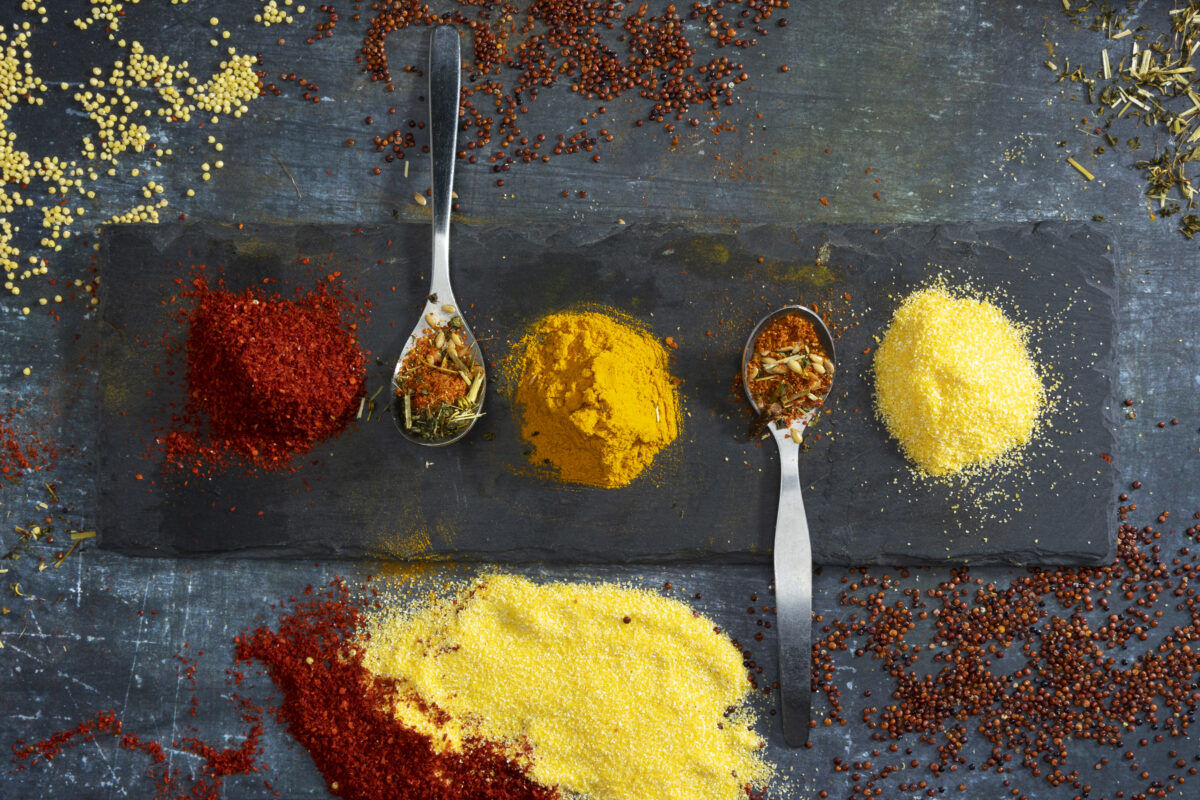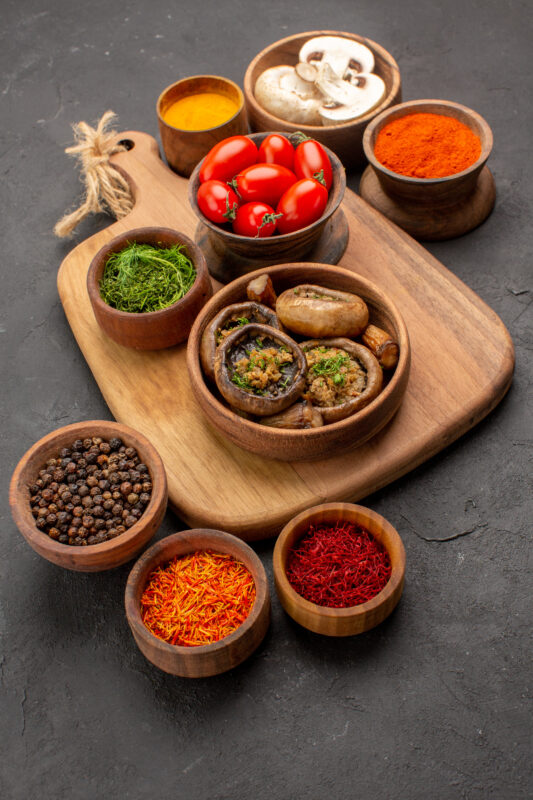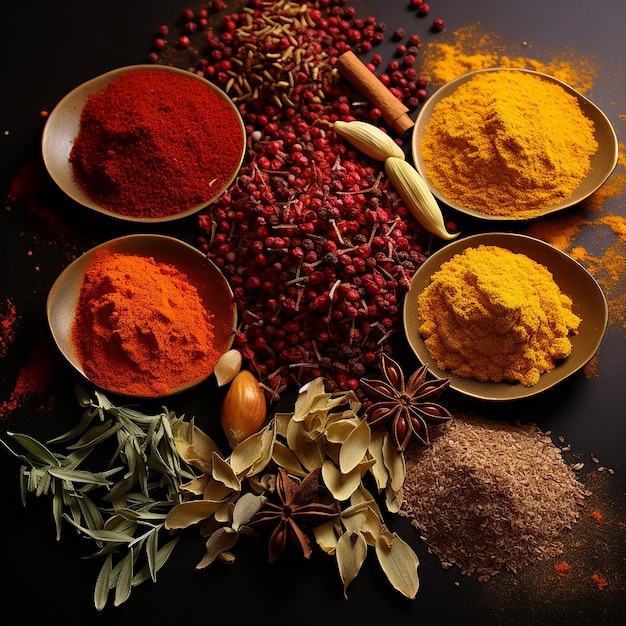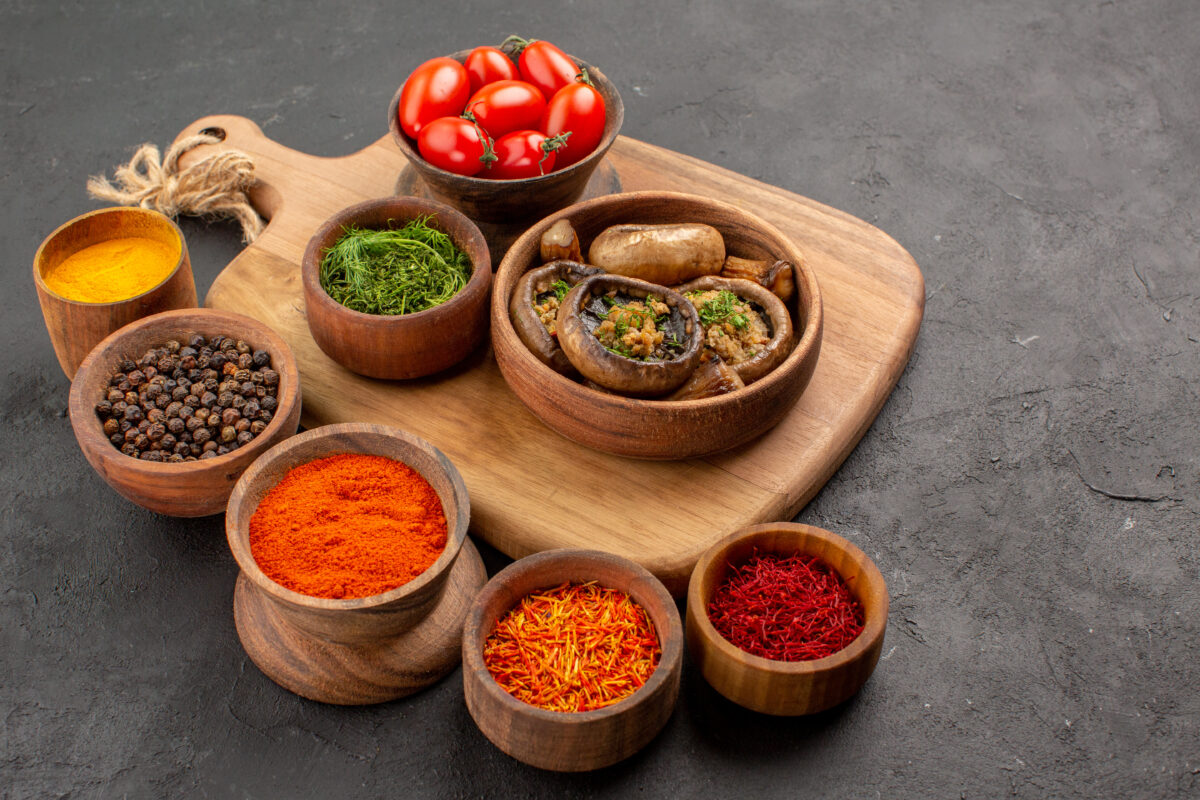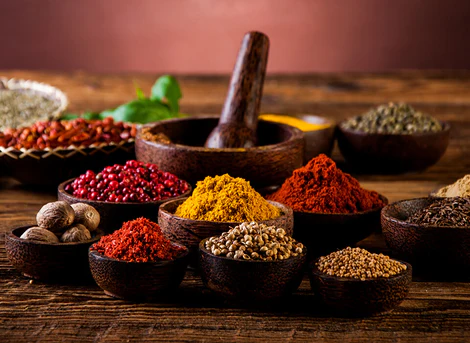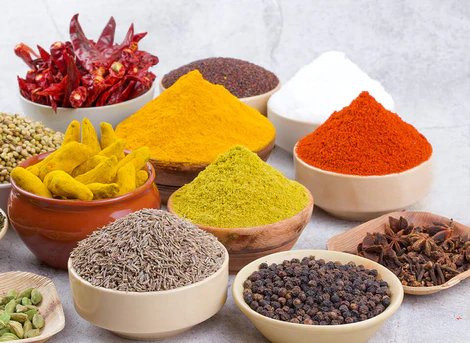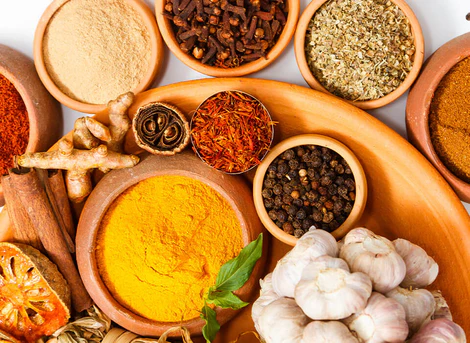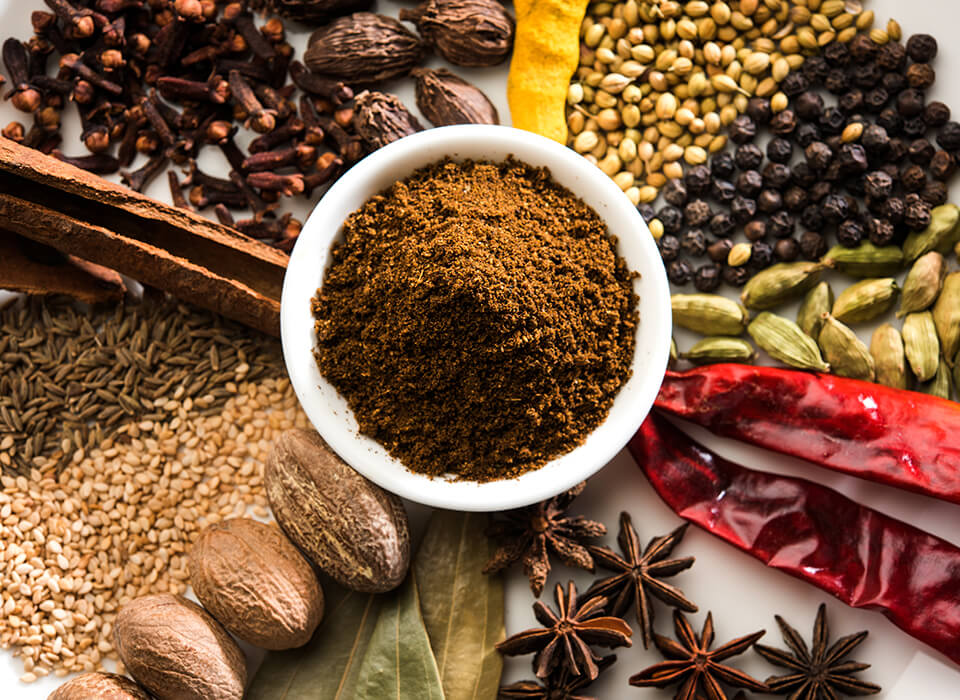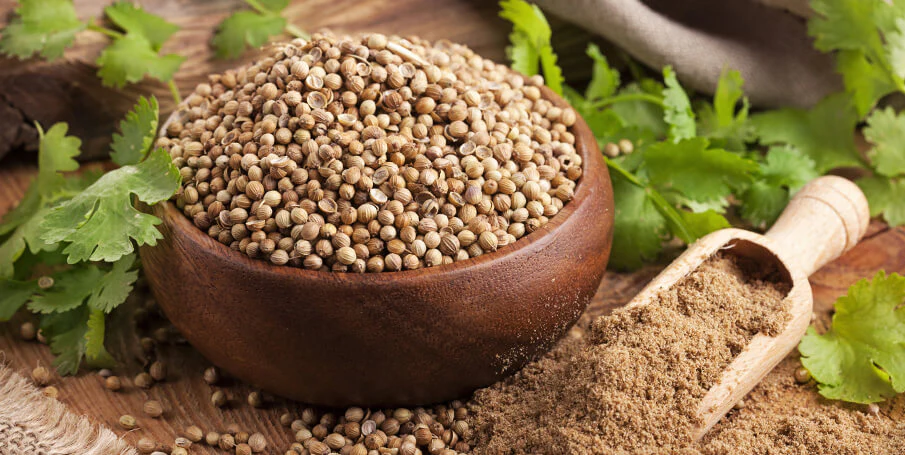For centuries, Indian cuisine has been synonymous with vibrant colors
intoxicating aromas, and an explosion of flavors. But beyond the sheer deliciousness lies a hidden treasure – the immense health benefits offered by the generous use of natural spices. These humble ingredients, readily available in every Indian kitchen, are not just flavor enhancers, but powerful allies in promoting good health and well-being.
A Treasure Trove of Antioxidants
Our bodies are constantly bombarded by free radicals, unstable molecules that damage cells and contribute to various chronic diseases. Natural spices are packed with antioxidants, nature’s defense system against free radicals. Turmeric, the golden wonder of Indian kitchens, boasts curcumin, a potent antioxidant with anti-inflammatory properties. Cloves (lavang) and cinnamon (dalchini) are also rich in antioxidants, helping protect cells and potentially reducing the risk of chronic diseases.
Boosting Immunity, Naturally
Spices play a crucial role in strengthening our body’s natural defenses. Ginger (adrak), a staple in Indian cooking, has long been used for its immune-boosting properties. It can help fight off infections and soothe a sore throat. Cumin seeds (jeera) and garlic (lahsun) also possess antibacterial and antiviral properties, aiding the body in its fight against illness.
Aiding Digestion, Naturally
Spices are a boon for a healthy digestive system. Fennel seeds (saunf) are known carminatives, which means they help expel gas and relieve bloating. Cumin seeds (jeera) stimulate the digestive enzymes, while ginger (adrak) aids in the breakdown of food and eases nausea. Black pepper (kali mirch) improves nutrient absorption, ensuring your body gets the most out of your meals.
Managing Blood Sugar Levels
Certain spices can be helpful in managing blood sugar levels, especially for those at risk of diabetes. Cinnamon (dalchini) has been shown to improve insulin sensitivity and help regulate blood sugar. Fenugreek seeds (methi) also possess similar properties, slowing down the absorption of carbohydrates and keeping blood sugar levels in check.
Promoting Heart Health
Spices can contribute to a healthy heart. Turmeric’s anti-inflammatory properties can help reduce inflammation in the blood vessels, promoting better cardiovascular health. Garlic (lahsun) may help lower bad cholesterol (LDL) and raise good cholesterol (HDL), further protecting the heart. Cayenne pepper (lal mirch) contains capsaicin, which can improve blood circulation and potentially reduce the risk of blood clots.
Adding Variety and Reducing Sodium
Spices offer a vibrant range of flavors, allowing you to reduce your dependence on salt. Experiment with a variety of spice blends to create exciting flavor profiles in your dishes. Garam masala, a warm spice blend, and sambar powder, a south Indian staple, add depth and complexity without relying heavily on salt. This allows you to enjoy delicious food without compromising your heart health.

